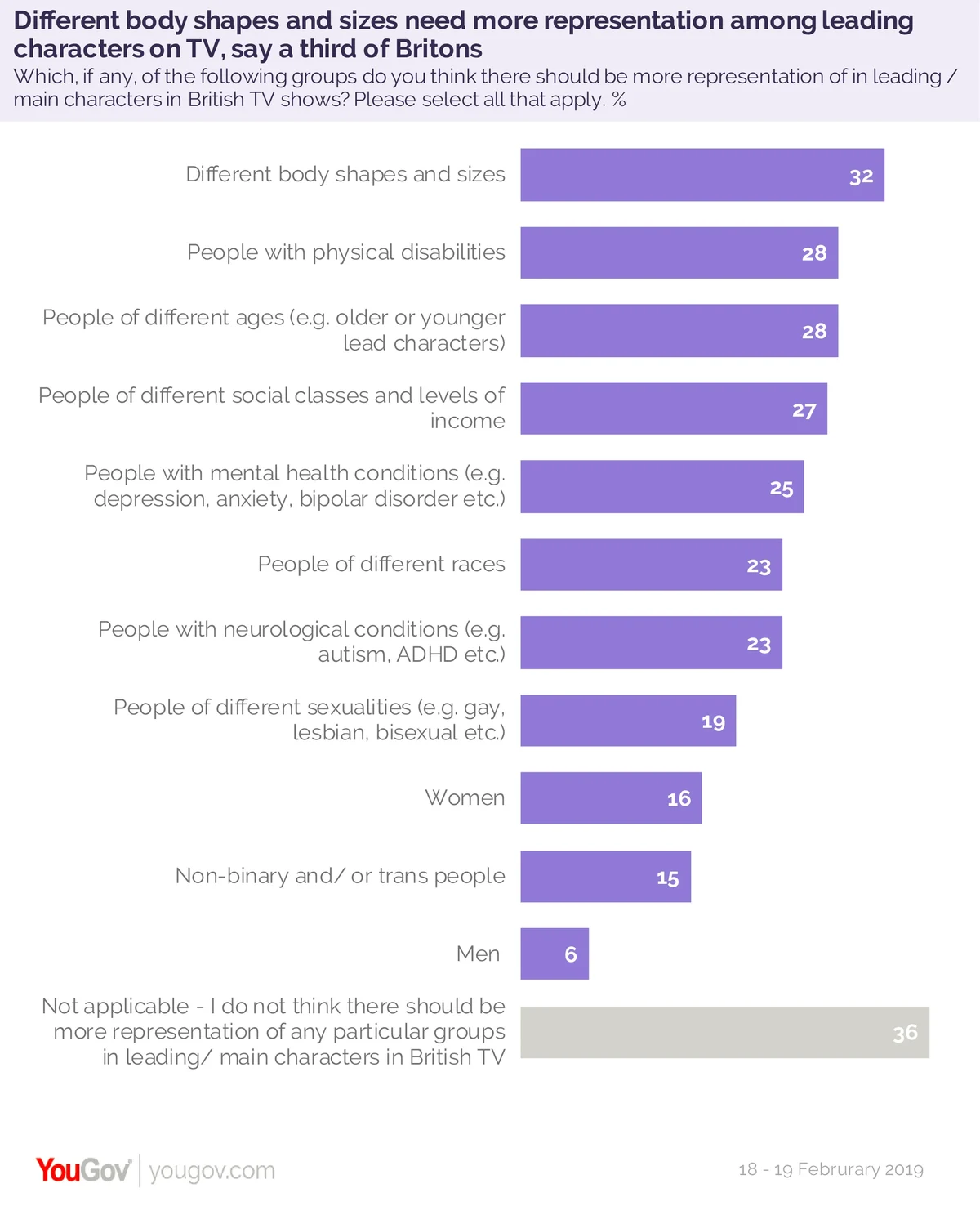The only group men are more likely than women to think needs more representation on TV is men
A new YouGov RealTime survey for the Yahoo / YouGov podcast ‘Britain Is A Nation Of’ explores how much progress Britons think has been made towards equal representation on television – not just of gender and race, but of mental, physical, age, class and sexual diversity.
A third of Britons don’t think any group needs more representation
The survey presented Britons with a list of identifiers, from women, non-binary and trans people, to those of different social classes and levels of income, and asked which, if any, of these groups they felt needed more representation in leading roles on television.
One in three Brits (36%) felt none of the named groups needed more airtime. This view is more prevalent among older Britons, with half (47%) of those over 55 falling in this camp compared to just one in five (22%) 18 to 24 year olds.
Britons most likely to think people of different sizes could be better represented
Of all the groups listed, the largest positive response was towards people of different body shapes and sizes (32%).
Around a quarter (28%) think that people with different physical disabilities need more representation, and similar amounts thought the same of older people (28%), varying social classes (27%), those with mental health conditions (25%), different races (23%), and those suffering from neurological conditions such as autism or ADHD (23%).

A fifth (19%) think different sexualities should be better represented in leading roles.
Just one in six (16%) think women need more representation – the same proportion as think non-binary and/or trans people could be better represented (15%). Women themselves are only marginally more likely than men to think women need more representation (18% versus 14%).
Women and young people more likely to call for increased representation across the board
Women are almost twice as likely as men to say that different body shapes and sizes need to be featured more often in programmes (40% versus 24%).
They are also around 50% more likely than men to say there should be more leading characters with physical disabilities (34% versus 23%) and neurological conditions (29% versus 17%).
The only group which men are more likely (8%) than women (4%) to demand more representation for is men.
Young people, like women, are also more likely to call for greater representation than older age groups.
Those aged 18 to 24 year olds are significantly more likely than older groups to think there is a lack of representation among leading roles on TV for almost every group named. They are three times as likely as over 55s to think women (30% versus 11%) and people of different sexualities (31% versus 11%) need more representation, more than twice as likely to say so for people of different races (37% versus 17%) or neurological conditions (35% versus 14%).
The only groups where the ages align on needing more representation are people of different ages (24% versus 29%), and men (5% versus 6%).
Photo: Getty
Listen to "Britain Is A Nation Of..." on iTunes, Spotify, or aCast
See the full results here






